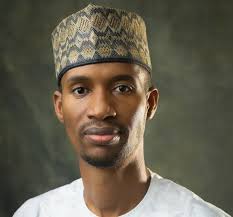
Musikilu Mojeed, The Letterman (A Review, Part 2)

The second part of the review of The Letterman focuses on the series of letters written by Chief Olusegun Obasanjo to presidents, regional leaders, nations, and even military men. These letters are more critical and were either Obasanjo’s responses or observations on the nation’s affairs. Mojeed has effectively packed these letters in chapters three to twelve, focusing on military professionalism, democratic leadership affairs, and attacks on the politics under military rule in Nigeria. After this, the book has letters on the political games in Nigeria, focusing on tactical players, and in the last three chapters, the book pays attention to the letters Obasanjo wrote to the international community on Nigeria and African affairs. It is important to note that the letters in this part of the review reveal that Obasanjo’s letters are prominent and will be situated appropriately in the archives on Nigeria’s political history.
Reading these letters curated by Mojeed provides an insight into the mind of Obasanjo as a global leader who has educated and admonished international and local political leaders. As a result, the foundation of this review will be on the consistent and recurring nature of the difficulties of governance in Nigeria and Africa, historically and presently. Through his presidential letters, Obasanjo pushed the frontiers of individuals seeking to observe and build a working and new Nigerian nation and a truly prosperous African continent.
Chapters three to eight of The Letterman aptly and adequately present Obasanjo’s courage, patriotic commitment, and concept of discipline during the war years as the General Officer Commanding (GOC) Third Marine Commando. He was ardent in ending despondency amongst soldiers, which he appropriately covered in his book, My Command. The letters in these chapters were written to soldiers concerning their welfare and mismanagement. Through the letters, the readers can perceive different shades of the commanding officer. In the war-front letters, Mojeed captures Obasanjo’s letters written to Lt. Col. Ariyo and Lt. Col. Aliyu, in which he referred to the latter’s letter as childish and baseless: “Your assertion of other brigades being better supported is childish. I have no favourite among the brigades and neither has any of my staff officers.”
Also, Obasanjo’s letters surveyed and demanded no nonsense from his officers. In one of his letters dated June 26, 1969, he fired a memo to Lt. Col. Alani Akinrinade, querying him for travelling out of his sector without permission. Interestingly, he titled it “Discipline Officers.” Obasanjo was detailed, and he wrote with so much assertion. The letter’s last paragraph aptly captures the tone: “Nothing short of this will I take. I regard your visit to Port Harcourt on 25 June ’69 without my permission or being informed as grossly improper. Neither was any of my staff officers informed.”
In contrast, the letters in Chapter 4 of The Letterman are more centred on the well-being and welfare of the soldiers, particularly during the war. The letters in this chapter are longer than those on discipline for the soldiers. They are more spontaneous, empathetic, and a general call for action across all regions of the country during the war. For instance, there is a different version of the Commander trying to look after the soldiers’ health and monitoring their ability to perform their duty. Mojeed titled this chapter “The Piercing Letters to Gowon.” It is important to point out that the word “piercing” suggests the letter’s depth of emotions, tone, and sympathy. In one of the paragraphs in his letter, Obasanjo wrote: “I would like to hint that the present high morale of both officers and men in the field is only being maintained and can only be sustained by the expectation of a dramatic move to end the war soonest.” Despite setting up disciplinary actions for the soldiers when they erred, Obasanjo maintained and ensured the general well-being of the soldiers so they could duly perform their duties for the nation.
Based on these, we see Obasanjo as a Commanding Officer who upholds the concept of discipline. Through his letters, he implied complete triumph, and despite the unlimited control over the soldiers, he still acted right and in an unbiased manner. The objective of the discipline was to effectively present an organized society that would enhance the nation’s orderliness, harmony, and progress. The portraiture of the character presented in the letters helps readers to accurately compare the notion of indiscipline and dedication, which are aspects of the discipline.
From his letters, it can be deduced that Obasanjo exemplifies dedication and demonstrates what should be preached and sold to people in service and governance to help properly promote work and present a dutiful image of the country. He is portrayed as having the will to work for others as eagerly as he was willing to work for himself and put out more efforts, which earned him self-respect and contentment at work. This attribute made him look at matters objectively, particularly during the war, as he was concerned about the inadequate funds to see out the war.
Obasanjo expressed his thoughts in the letter he angrily wrote to General Yakubu Gowon, the Commander-in-Chief, in July 1969. The tone of the letter was harsh and showed some level of disappointment, and he also gave his impression and thoughts about the situation, which proved his allegiance to the notion of citizenship, patriotism, and nationhood. This part will be densely quoted to capture this view: “It is rather disheartening that all of us in uniform seem not to be able to understand the implications and ramifications of the present civil war. I wrote to you in all seriousness and conscious of my duties and loyalty to you and to the country…It will be disastrous to save the economy and lose the war…We seemed to be confused in our mission and our aim. We give the impression of groping in the dark and wandering about aimlessly and purposelessly. I am sure we can do it with a sense of mission and a sense of direction. The country needs to be woken up from her slumber and apparent complacency.”
As part of embracing the idea of openness and being unbiased, Obasanjo allowed criticism even from junior soldiers. Mojeed captures this well in the letters Obasanjo wrote and received from General Abisoye, which helps the readers to understand the concept of duty and responsibility. On November 28, 1969, General Abisoye wrote to his Commander, fiercely objecting to the plan, which the author of the book quoted as thus: “You will recall that you did confirm to me that you were unaware that an almanack is being arranged for the Division.” It is understood that Obasanjo accepted the complaint without taking offence at the audacity of his junior. In his response, he even made a joke about his facial attractiveness.
Additionally, Obasanjo’s ability to differentiate between duty and responsibility and make oneself accountable, even in the face of confrontation from a junior colleague, is noteworthy, as he promotes the idea of self-respect amongst workers, which should also be a quality in public service. Therefore, the attribute of respect for the rights of others goes along with responsibility, and the demands of individuals or groups should be accommodated to ensure a common goal is attained.
However, not all soldiers were on the same page with Obasanjo. He had conflicting issues with some of them, like Colonel Godwin Alabi-Isama and General Oyeleye, which Mojeed describes as a faceoff. It is even important to state that these soldiers wrote books as a sort of response to the subject. In The Letterman, the author notes that the relationship between Obasanjo and Alabi-Isama (then in charge of Sector 3 of the Division) was initially cordial, but it quickly deteriorated about a month after the new GOC’s arrival. This was because the Commander had received a complaint accusing the officer of improperly acquiring a Mercedes Benz car from the war front. Obasanjo’s words were a mixture of harshness and understanding in the letter responding to the Colonel. He wrote: “I will loathe to imagine the cost to all of us on this side of our inability to make the rebels accept our terms or be defeated. Their success is our death, no matter our hopes, wishes, aspirations and ambitions. I take your mood of last night as a temporary fatigue and with little relaxation, recreation and rest, you will be fighting-fit again.”
Similarly, he had hot shots with Major James Oluleye because he set aside Oluleye’s operational instruction in favour of his plan, which ultimately damaged the once cordial relationship between the two men and created additional challenges to the war effort. The letters exchanged between both men were hot, short, and filled with assertive diction. The second paragraph draws from Obasanjo’s reply: “Naturally, in the course of duty, we have had disagreements on plans and methods. But now that I seem to have been vindicated on my plans and methods, you will understand why I felt as I felt at times in those grim days.”
In his post-military letters, Obasanjo wrote to regional leaders, military rulers, and later to the heads of political parties in the country. The letters to this set of Nigerian leaders were a call to action, and the tone was critical. Starting with the letters to Chief Obafemi Awolowo, he wrote more like an elder statesman and used more warning language mixed with advice for the veteran politician. In a letter dated December 13, 1979, the recently retired General took issue with Awolowo’s political address to his party’s congress. Obasanjo responded to the letter and accused Awolowo of a lack of ethical rules in his dealings. The introduction of the letter was direct and confronting: “Your address to your party’s congress yesterday and the allegations contained therein against the federal military government which I had the honour to lead and against me personally impelled me, in the interest of Nigeria, to write this letter to you.”
Chief Awolowo’s responded to Obasanjo’s long letter and went straight to the point: “Your letter of 12 December 1979 was delivered to me by your courier at about 6.00 p.m. yesterday. Whilst thanking you for the letter, I have a few comments to make in reply.” In another one of Awolowo’s letters, he wrote to Obasanjo thus: “Finally, I send you herewith four bags of Gari. There are two kinds; the very fine and the not-too fine. Both are very good as you and your family will discover. They are both produced in one and the same process with different sieves.” In response, Obasanjo sent a congratulatory birthday letter to him. However, although they exchanged long and confronting letters, they both had the nation’s interest at heart.
Obasanjo’s letters to Shehu Shagari, Ibrahim Babangida, and Abacha were more aggressive as he attacked their administrative dealings and local government policies. In his letters, as analyzed in The Letterman, readers have an idea of how instability has been the reason for the nature of political change in Nigeria, where stability is supposed to surface, as well as the realignment of forces to bring the nation together. This reignited Nigerians’ hope that they would enjoy the dividends of independence promised by civilian political leaders. However, this was not adequately espoused in the Shagari government. The letter, presented by Mojeed, shows that Obasanjo had a very low opinion of the Shagari-led administration. This is reflected in a September 28, 1983, letter by Vida Musa, Obasanjo’s secretary at the time, to Martin Iroabuchi, then editor of the Daily Times newspaper. In the letter, the secretary wrote, echoing Obasanjo’s sentiments: “At the federal level there is a chief executive or president who has shown tremendous political tolerance and NOT much political sagacity. At the state level the performances of chief executives have been variable but in totality short of expectation. The legislatures could have performed better than they did.”
The letters in Chapter 11 and Chapter 12 focus on the rulings of the military men – General Sani Abacha and General Ibrahim Babangida. According to Mojeed, Abacha “enjoys the deserved reputation of being the most brutal and corrupt of all soldiers who forced their way into Nigeria’s ruling house.” In a letter to Babangida, Obasanjo wrote: “This letter is now formally to request you to explore and conclude, with the greatest speed and effectiveness, new interventions in the international financial system in support of our general external debt reduction programme.” The letter revealed that the local government policy was “decapitating the local government administrative structure and warned that this would “amount to elimination of a vital instrument of development closest to the people.” In the letter, which was more of a warning, Obasanjo wrote, “It will be a grievous mistake of immense implications and consequences for all of us. I therefore urge that the complaints of the Union be looked into and what appears as the fatal incursion into and slow but steady decapitation of the local government be halted.”
In Nigeria, the trends of political instability amounted to belief in a social revolution by the people and a new set of power grid men that believed that the radical transformation of Nigerian society and government was paramount and inevitable. This birthed the incursion of the military government in Nigeria from the 1960s to the 70s. In as much as this new form of government was the norm at that time, political leaders, including Obasanjo, had seen the idea of the political order in a new light or perspective, which was why he sent most of the letters as a sincere call to action for the military leaders in power.
Furthermore, the substantial parts of the letters were those he wrote to the international community, from the apartheid crossfires to Jimmy Carter and the British Prime Minister, Margaret Thatcher. In these sets of letters during that period, General Obasanjo combined the attributes of a courageous leader from Africa and Africans who sought more urgency in the dealings of the South African regime to welcome a new South Africa. From these letters, Obasanjo demonstrated that he was interested in the Nigerian agenda and how Africa is portrayed in global affairs. Africa is facing the problem of cultural dependency and liberation of power from international systems. Obasanjo saw the brewing hypocrisy from the international community, angrily broke protocol, and had an altercation with Thatcher. Afterwards, a frustrated and angry Obasanjo wrote her a letter condemning the Prime Minister unreservedly.
The letter, dated August 1986, where Obasanjo referred to her as “Dear Margaret,” shows readers how complex and astute he is. He introduced the letter thus: “After our meeting on Sunday, I write as one committed democrat to another. Yours is an old country with a lengthy democratic tradition; mine a new country undergoing a process of nation-building. But as democrats, we can be frank with each other.”
From the above, it is obvious that Mojeed’s book chronicles the various sets of letters that Obasanjo wrote to the most senior officers who served in his time, the democratic and military leaders, international leaders, as well as celebrities and notable persons in Nigeria and abroad. This set of letters curated by Mojeed in the book shows a man with different shades of characters with his flaws while simultaneously putting the interest of the nation and the African continent at heart. We can agree that President General Chief Olusegun Obasanjo has a place in Nigerian history, and his series of letters have helped the readers to see him from newer perspectives.
By cataloguing the letters of a complex man to help readers have a thorough understanding of his values, attributes, and belief systems in public service, leadership, and human relations in The Letterman, Mojeed has established his craftsmanship and professionalism as one of the most erudite editors in modern Nigerian journalism, especially with its journalistic reporting and blend of the biographical genre. As a historian, I celebrate his decision and efforts to produce this landmark book. Many will surely put it to good use in writing the history of Nigeria.
Mojeed is committed to building a strong Nigeria, and his unstated intentions are to search for the Gospels. This may be his Mark, the first gospel, as he journeys through to reach the Gospel of John. Perhaps, this is the beginning of his surahs, as The Letter Man is divided into ayats, with the Al-Kawthar and the Al-Bagara. The Meccan speaks to the people, and the Medinan to political leaders. I can feel the anguish of Mojeed in locating Al-Fathia, still missing from his fascinating book, in which the salah leads us not unto mercy. The preface, which should have been a Bismillah, falls short of a Rakat. Mojeed is careful not to convert Obasanjo into an Alhamudullah, as he owns neither the world nor heaven. In avoiding equating Obasanjo as Ar-Rahman Ar-Rahim, Mojeed has kept fate to the ultimate injunction of man as no more than the vicegerent of Allah (Quran 29:11).







